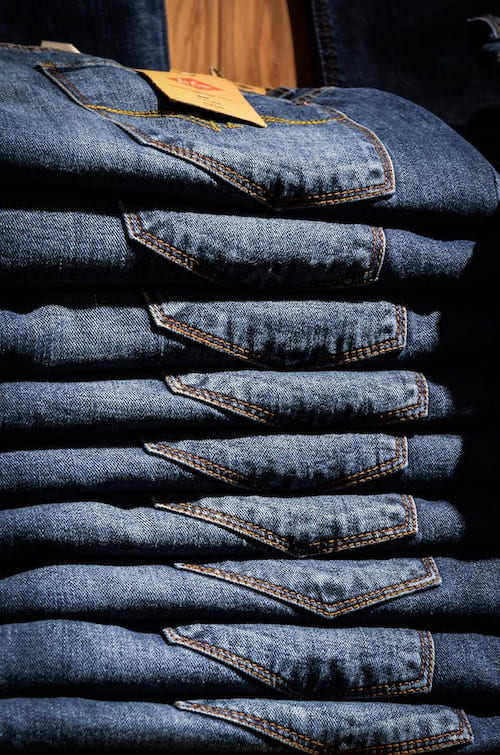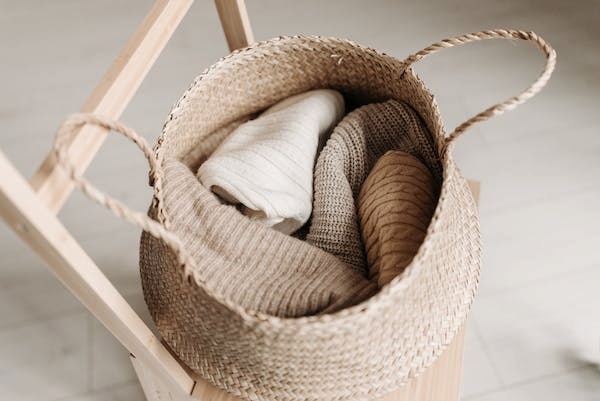Antimicrobial fabrics have been getting more popular since the beginning of the COVID-19 pandemic, with many brands releasing garments impregnated with antimicrobial chemicals to protect wearers from viral infections. But can wearing clothes made with antimicrobial fabric really keep you from getting sick?
Maybe, maybe not – it really depends on the specific pathogen you encounter and what your clothes are treated with. Antimicrobial clothes might not be the best protection against COVID-19, but a mask made with antimicrobial fabric could help protect you. Antimicrobial fabrics can also be used to make clothes that resist odors and last longer, too.
Antimicrobial Treatments for Fabric
People have been using antimicrobial treatments on fabric going all the way back to the ancient Egyptians, who used antimicrobial spices and herbs to treat the fabric they used to wrap mummies. These days, fabrics are treated with metal and metal oxide nanoparticles and macroparticles. Metals like silver, zinc, gold, tin, and copper are used to coat fabrics and give them antimicrobial properties. Natural compounds extracted from plants and animal products like honey are also used to treat fabrics. Nitrogen plasma treatments and halogen treatments have also been found to be effective at protecting surfaces from bacteria and other microbes.
How Antimicrobial Fabrics Kill Pathogens
Most antimicrobial fabric treatments coat the outside of the fabric – many are chemically bonded to the fabric so they remain infused in the fibers for at least 20 washes. Some treatments are the leaching type, which create a zone of exclusion around the fabric that keeps microorganisms at bay. Others are the bonded or non-leaching type, where the fibers themselves are hostile to microbes. Antimicrobial properties tend to last longer in the non-leaching type fabrics.
Antimicrobial textiles usually kill viruses by disrupting or damaging the lipid coating on the exterior of the virus. The damage will mean the virus can’t infect a host or replicate. Antimicrobial fabrics would be effective at stopping a lipid-encapsulated virus like COVID-19, but experts say people just aren’t likely to catch COVID-19 from their clothes. You’re much more likely to spread and catch COVID-19 by not wearing a mask.
A mask made from antimicrobial fabric, on the other hand, could provide an extra layer of protection against infected airborne droplets that could land on the mask.
Bacteria and fungi are killed on contact with most antimicrobial fabrics, though, to be fair, it’s not instantaneous – it can take a few minutes of contact. Antimicrobial textile treatments like fluoroquinolone and eugenol have been found to be particularly effective at killing bacteria and preventing the growth of biofilm. The number of bacteria on a surface can double every four to 20 minutes, so contamination with just a few bacteria could lead to a sizable bacteria colony and a health risk in pretty short order.

Why Choose Antimicrobial Fabrics
Antimicrobial fabrics may be able to protect you from viruses, bacteria, and fungi, by killing these microbes or at least slowing their growth. A pair of jeans made with antimicrobial denim may or may not protect you from COVID-19, but it will definitely last longer and you won’t need to wash it as often.
The textiles in our clothes rub up against our skin all day, absorbing moisture and sebum, or skin oils. The sebum that rubs off on our clothes provides a delicious substrate for bacteria colonies to grow. The moisture of our sweat on fabric can provide an environment amenable to fungal growth.
Bacteria and fungi growing on your clothes can make them smell bad, even if the colonization is invisible to the naked eye.
When you work up a stink during a workout, for example, the body odor smell is actually the byproduct of bacteria on your skin feeding on your sweat. Antimicrobial workout clothes can control bacterial growth and hence the smell it generates.
That means your clothes won’t need to be washed as often, because they won’t smell as bad. Clothes that see heavy use, like activewear, won’t develop that permanent stench that polyester and other synthetic fabrics often develop due to bacteria buildup.
You’ll save money on water and electricity, your clothes will last longer because they’ll be getting less wear and tear in the washing machine, and you’ll feel more confident, especially in exercise classes.
Antimicrobial fabrics have a role to play in protecting you from infectious diseases. They can kill viruses, bacteria, and fungi that you come into contact with, so it doesn’t make you sick – and antimicrobial textiles can last longer, too.
Read Also
- How to Find a 5-Star Dentist Near YouChoosing a dentist is more than just finding someone who can clean your teeth. It’s about selecting a trusted partner in your long-term oral health. A 5-star dentist not only provides excellent clinical care but also delivers a positive patient experience, from the moment you walk in until the moment you leave. Whether you’re new… Read more: How to Find a 5-Star Dentist Near You
- Your Easy-Peasy Guide to Brewing Amazing MatchaHey there! So, you’ve heard all the buzz about matcha – that vibrant green powder that’s not just pretty but packed with good stuff? It can seem a little fancy and intimidating at first, but trust me, making a delicious cup at home is simpler than you think. Forget complicated ceremonies for now; let’s just… Read more: Your Easy-Peasy Guide to Brewing Amazing Matcha
- Embracing Holistic Wellness: Insights from a Lansing, MI Health CenterReframing Health: Moving Beyond Symptom Management Treating only symptoms often offers quick relief, yet long-term results stay out of reach. When care zeroes in on isolated complaints, the bigger picture, such as stress, behavior, or lifestyle, often gets missed. Research shows that whole-person care, which looks at physical, emotional, and environmental factors, yields better outcomes… Read more: Embracing Holistic Wellness: Insights from a Lansing, MI Health Center
- VO₂ Max Testing Explained: What It Is & Why It Matters for Your HealthVO₂ max sounds like a term reserved for elite athletes, but it’s among the most accurate measures of your lifetime and general condition. Moreover, it goes beyond performance. Monitoring your VO₂ max will help you to ascertain your body’s capacity to control stress, its oxygen consumption efficiency, and your internal ageing process. If you have… Read more: VO₂ Max Testing Explained: What It Is & Why It Matters for Your Health
- So, what exactly is matcha?Think of matcha as green tea turned up to eleven! Instead of steeping leaves and tossing them out, matcha is made by grinding whole green tea leaves into this super-fine, vibrant green powder. You whisk it right into hot water (or milk!), meaning you’re drinking the entire leaf. That’s why folks say you get way… Read more: So, what exactly is matcha?






